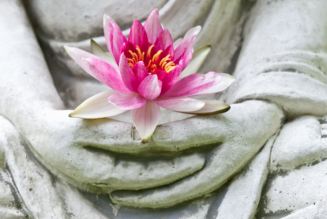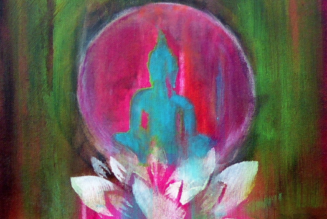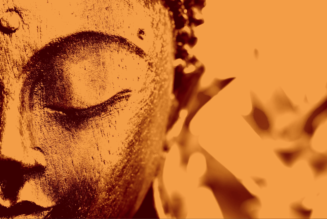8 Tips For Sound Sleep – An Ayurvedic Perspective
Sleep is one of the fundamental mainstays in Ayurveda. It is vital to sleep the appropriate hours at specific times in order to achieve balanced health. Sufficient sleep has tremendous health benefits including relieving stress, anxiety and restoring vitality. During sleep the body works to repair and rejuvenate tissues along with aiding protein synthesis and muscle growth. Sleep also promotes metabolic waste removal as well as assisting the immune system. In young children particularly, sleep is vital to the development of brain tissue. Adequate sleep also facilitates learning and memory skills and is therefore an integral part of the maintenance of health.
Sleep varies according to one’s constitution and state of balance. Therefore, awareness of the self and of one’s health is important to discern if the correct amount and quality of sleep is being attained. There are several categories of sleep complications. These include; insomnia, hypersomnia, parasomnias and dissomnias. Some of the causes of sleep disturbance can be due to diet, lifestyle and mental health. Some diseases such as endocrine disorders and pulmonary disease can also disrupt sleep.
Some Causes of Sleep Disorders amongst others include:
· Narcolepsy
· Restless leg syndrome
· Psychological factors
· Consumption of caffeine, drugs or alchohol
· Naps during the day
· Lack of exercise or too much before bed
· Consumption of foods that create indigestion
8 TIPS FOR SOUND SLEEP:
Management of sleep disorders involves a detailed analysis of one’s constitution, diet, lifestyle and state of balance. However, there are some general tips to achieve a restful and sound sleep.
1. Abhyanga – oil massages are a wonderful way of soothing the nervous system as well as inducing sleep. In particular, massaging bhringraj oil on the scalp and soles of the feet assist in providing better sleep
2. Hot milk – milk is a wonderful source of tryptophan which helps induce sleep. If consumed an hour before bed with a pinch of nutmeg, it can provide sound and restful sleep. Pitta types may add shatavari to their milk, vata types will be benefited by drinking garlic milk and kapha types can add turmeric.
3. Avoid caffeine, alcohol, drugs and smoking. These stimulants can lead to disease and have many negative effects on the body, as well as disrupting sleep.
4. Nutmeg and lavender essential oils are carminatives that work wonderfully during the night. Massaging a drop of nutmeg oil on the forehead can help soothe the nervous system. As nutmeg oil is heating, pitta types may benefit from using sandalwood oil instead. Sprinkling a few drops of lavender oil over the pillow and bed can be beneficial in inducing a restorative deep sleep.
5. Diet – eating appropriately to one’s constitution is vital to the maintenance of good health. Avoiding spicy, sour, heavy and aggravating foods can help to avoid hyperacidity, constipation and indigestion which can offset sleep cycles. It is best to consume a light meal a few hours before bed to ensure proper digestion and sound sleep.
6. Yoga and pranayama – gentle yoga poses and breathing exercises can help to calm the body down and relaxes the nervous system.
7. Meditation – the health benefits of meditation are vast and all-encompassing to overall good health. Meditating for 20 minutes before bed can have very effective benefits as well as inducing sound sleep.
8. Herbs – there are certain herbal recommendations when sleep is difficult to attain. Herbs such as tagar, jatamamsi, shankapuspi and ashwagandha can assist in relaxing nerves and providing a calm restorative sleep.
The overall method of creating a balanced mind, soul and body involves a regular routine of proper diet and lifestyle and meditation. Sleeping at regular times each day helps to set ones internal biological clock to function optimally. Awakening at set times and consuming balanced meals at proper times also assists in the maintenance of optimum health.
INTERESTING VIDEO ON YOGA NIDRA ~ “YOGIC SLEEP”
Yoga nidra or “yogic sleep” is a sleep-like state which yogis report to experience during their meditations. Yoga nidra, lucid sleeping is among the deepest possible states of relaxation while still maintaining full consciousness. The practice of yoga nidra has been found to help reduce tension and anxiety and even autonomic symptoms of stress.
“Doshic Insomnia” ~ Vata – Pitta – Kapha
In Ayurveda, insomnia is said to be of three types; vata, pitta and kapha.
Vata Insomnia:
Vata insomnia tends to involve awakening during the early hours of the morning (2-4am) accompanied with fatigue and drowsiness. This is usually due to:
· Cold weather
· Excessive exercise
· Over consumption of raw foods, beans and light cold foods such as salads
· Excess sexual activity
· Excess travel and noise
· Constipation, bloating
· Rheumatism and arthritis
Pitta Insomnia:
Pitta insomnia involves difficulty falling asleep and staying up past midnight. It is commonly associated with:
· Hot weather
· Over consumption of sour, citrus and spicy foods
· Hyperacidity
· Caffeine and alcohol consumption
· Staying up too late
Kapha Insomnia:
Kapha insomnia is usually early morning arising which is related to;
· Overeating heavy foods such as meats, dairy, sweets
· Snoring
· Sleep apnea
· Restless leg syndrome
· Depression
· Breathlessness
Disclaimer:
This information is strictly for educational purposes only and not to be considered medical advice.
Always first seek the advice of your primary care physician and a qualified wellness professional before considering any new regimen.
References
· Lad, V. (1999). The complete book of Ayurvedic home remedies.
· Sharma, H. (2011). Ayurvedic Healing. Singing Dragon
· Lad, V. (2002). Textbook of Ayurveda.
· Lad, V., & Frawley, D. (1986). The yoga of herbs
· Pole, S. (2013). Ayurvedic medicine the principles of traditional practice
· Green, J. (2000). The herbal medicine-makers’ handbook a home manual
· Lad, V. (2012). Ayurvedic perspectives on selected pathologies




![Female Health: Amenorrhea [cessation of menses] – An Ayurvedic Perspective](https://healthyayurveda.com/wp-content/uploads/2015/07/1.-Amenorhea--327x219.png)




